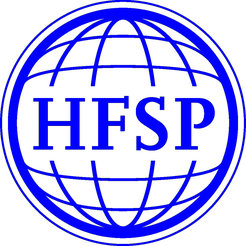Evolution of brain function in sensory processing
HFSP Program Grant awarded to Julijana Gjorgjieva
The Human Frontier Science Program (HFSP) has announced the winners of the 2021 HFSP Research grant applications. Julijana Gjorgjieva, research group leader of the Computation in Neural Circuits Group at the Max Planck Institute for Brain Research in Frankfurt has been offered one of the prestigious and highly competitive Program Grants Awards. These grants support novel collaborations among interdisciplinary teams of scientists with laboratories in different countries. This year, seven Early Career Research Grants and 21 Program Research Grants were selected for funding. Each team member receives on average $110,000 - $125,000 USD per year.

Gjorgjieva shares the award with Alex Keene (Department of Biological Science, Florida Atlantic University, Jupiter, USA) and German Sumbre (Department of Biology, Ecole Normale Superieure, Paris, France). The team will receive three-year funding for their project titled “Evolution of neural circuit dynamics and brain computations in Astyanax blind cave fish”.
Environmental changes often drive drastic evolutionary changes in behavior and brain function. While genetic mapping studies have provided insight into the genetic basis of behavioral evolution, much less is known about the neural circuit dynamics and brain computations that drive this behavioral change. To address this gap, the team will apply an interdisciplinary approach that leverages newly developed genetic tools. The project will exploit synergistic interactions between principal investigators with expertise in behavioral evolution, functional imaging and theoretical modeling to investigate how changes in neural dynamics underlie the evolution of sensory systems to new environments with different sensory constraints in the blind cavefish, an interesting model organism to study these questions.
The Human Frontier Science Program was founded in 1989 to advance international research and training at the frontier of the life sciences. It is supported in 2021 by contributions from the G7 nations, together with Switzerland, Australia, India, Israel, New Zealand, Singapore, Republic of Korea, and the European Union.












